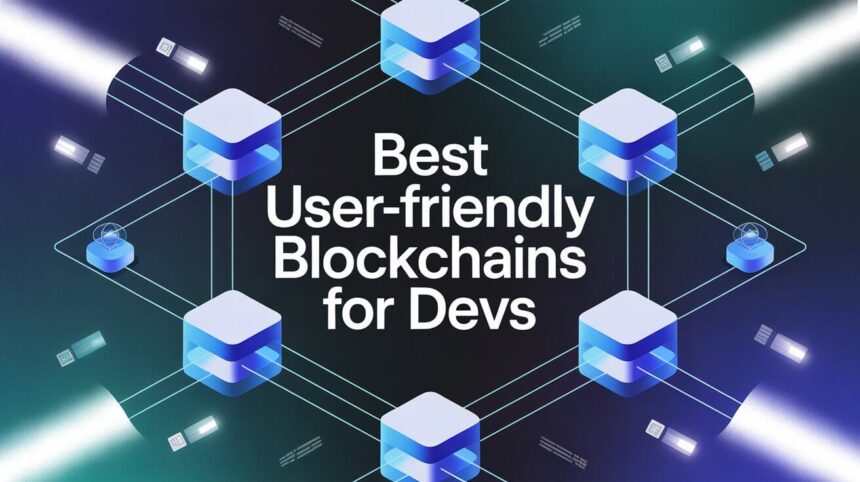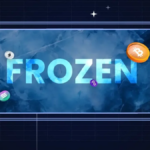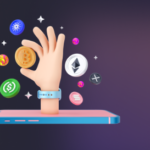In this article, I will discuss the Best User-friendly Blockchains For Devs. With many platforms offering different features and tools, picking the right blockchain can be very confusing.
I will examine an ecosystem of blockchains that best assist developers with the ease of building dApps and smart contracts through user-friendly interfaces, informative support systems, and scalable options.
Key Point & Best User-friendly Blockchains For Devs List
| Blockchain | Key Features |
|---|---|
| Ethereum | Mature ecosystem, robust developer tools (Solidity, Truffle), wide adoption |
| Solana | High throughput, low fees, Rust and C support, scalable for DeFi and NFTs |
| Avalanche | High scalability, low latency, C-Chain (EVM compatible), multi-chain architecture |
| Polkadot | Interoperable blockchains, Substrate framework for custom blockchain development |
| Cosmos | Modular design, allows blockchain interoperability, Cosmos SDK |
| Near Protocol | Developer-friendly, scalable, low transaction fees, Rust and AssemblyScript support |
| Algorand | High throughput, smart contracts in TEAL, low fees, consensus mechanism (PoS) |
| Cardano | Haskell-based development, high security, formal verification for smart contracts |
| EOSIO | Fast transaction speed, low fees, C++ based, focuses on scalability and usability |
| Corda | Permissioned ledger, designed for business use, smart contract development in Kotlin/Java |
1.Ethereum
Ethereum is simply among the most developer-friendly blockchains. Ethereum remains in focus because of its developer community, literature available on documentation, and ecosystem as its primary advantages for the development of decentralized applications.
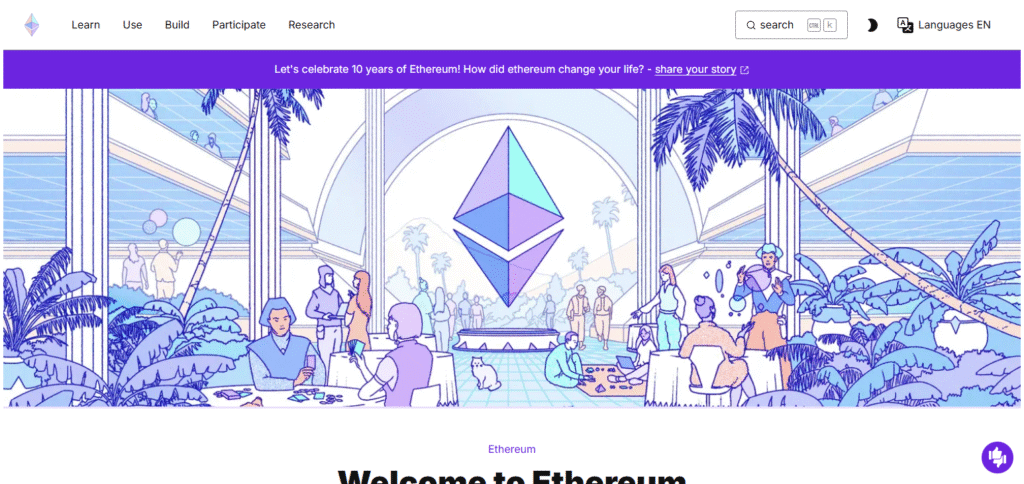
Ethereum is even popular because its programming language ‘Solidity’ enjoys great popularity and guides are available for novices making it simple for seasoned and new programmers alike.
Other than this, the range of available documents is supported by an elaborate net of libraries, frameworks, and tools which simplifies the development of reliable, versatile, and novel blockchain technologies.
Ethereum Features
2.Solana
Solana is recognized as one of the most user-friendly blockchains for developers due to ultra-quick and cost-effective transaction processing, which is essential for scalable decentralized applications.
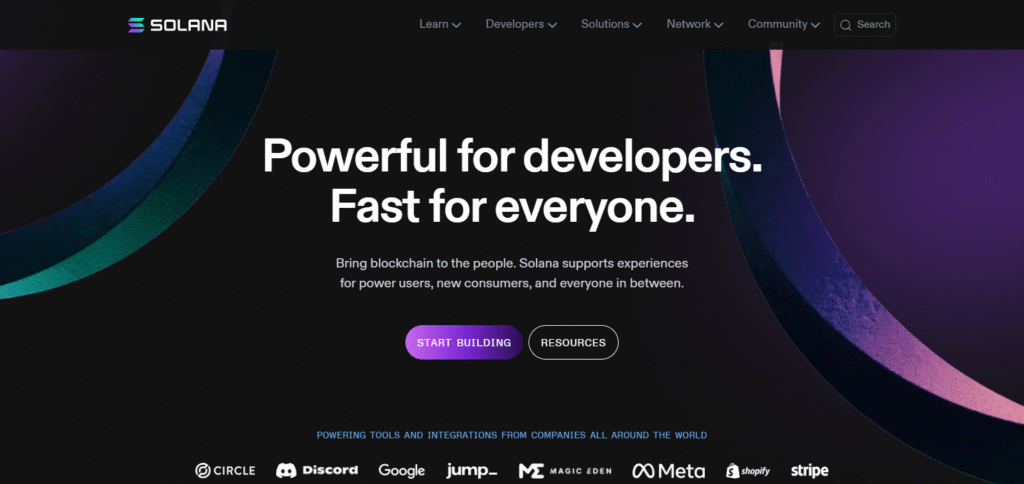
The platform’s adoption of Rust and C enables developers to write and compile code with great speed. Solana’s seamless application integration coupled with powerful developer tools and full documentation add to the ease of development.
Additionally, the vibrant ecosystem and active community of developers provided sustainable support, enabling constant innovation and enhancing the overall user experience.
Solana Features
3.Avalanche
Avalanche is one of the preferred options for developers because of its architecture which permits the making of user-specific blockchains, or “subnets.”
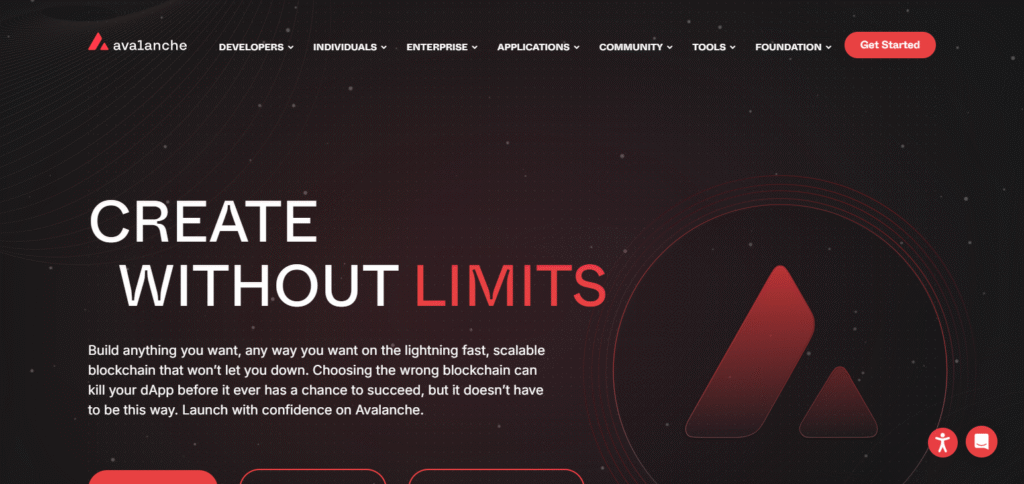
This characteristic allows developers to design bespoke blockchain environments suited for specific use cases. For building decentralized applications, Avalanche is efficient due to its high scalability, low latency, and the Avalanche consensus protocol.
Furthermore, the ecosystem’s Avalanche development tools and documentation enhances the developer experience by streamlining the integration process with frameworks and platforms and eliminating time delays.
Avalanche Features
4.Polkadot
Polkadot is one of the most developer-friendly blockchains owing to supporting cross-chain interoperability. Developers can create custom blockchains or parachains and link them with other chains on the network due to the its modular architecture.
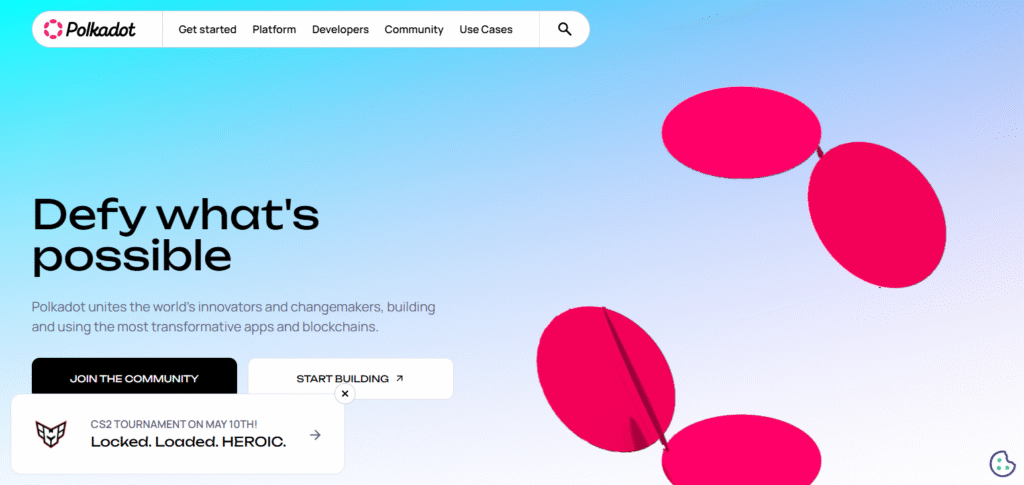
The streamlined development frameworks of Polkadot’s ecosystem allow building of decentralized applications because it includes a secure environment in which to operate.
It has specialized tools and documentation for almost everything and one can always find someone ready to help out in the community which makes it greatly suitable for blockchain development.
Polkadot Features
5.Cosmos
Cosmos is known as one of the most developer-friendly blockchains ecosystems because of its design which allows different blockchains to communicate and interoperate seamlessly.
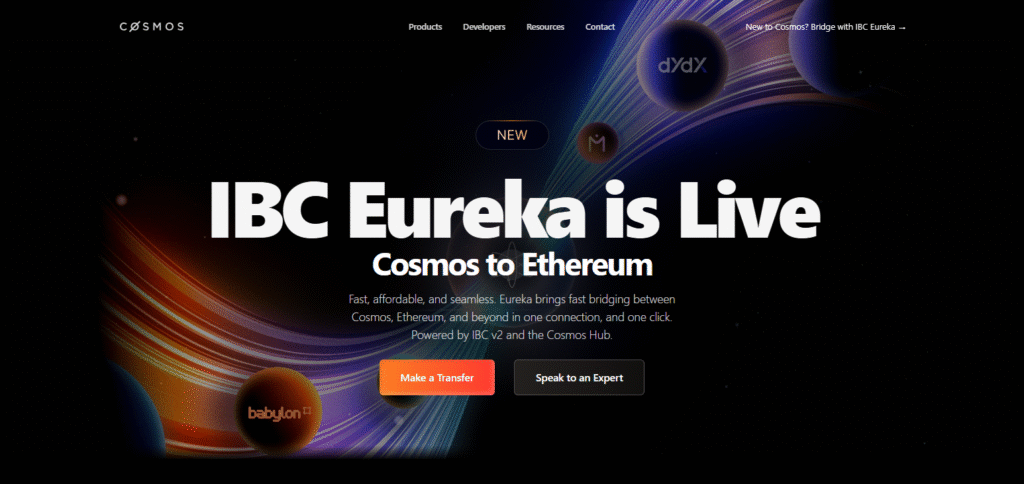
The Cosmos SDK provides a highly composable infrastructure for developers to easily create bespoke blockchains, and the Inter-Blockchain Communication (IBC) protocol guarantees that these chains can interact with one another safely.
This level of scalability, alongside a robust set of developer resources and community support, facilitates the construction of dApps without the intricate challenges present in other blockchain ecosystems.
Cosmos Features
6.Near Protocol
Near Protocol stands out to developers because of its scalable and simple blockchain options. Its noteworthy features include low transaction cost and high ongoing throughput due to its sharding architecture, Nightshade.
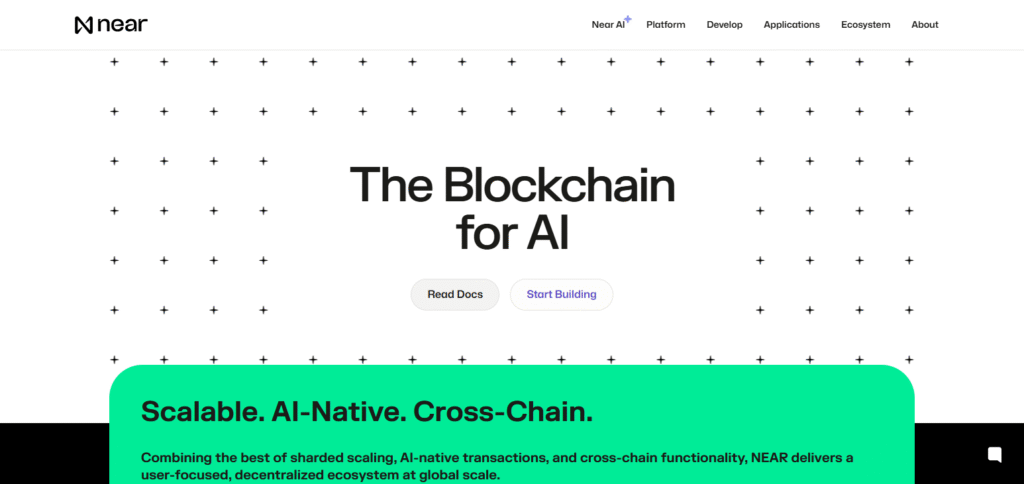
Smart contracts can effortlessly and efficiently be crafted utilizing the NEAR SDK, and other developer tools provided by the platform. Also, NEAR’s ecosystem ecosystem supports Rust and AssemblyScript, making it straightforward for programmers of all levels to apply their skills.
Near Protocol Features
7.Algorand
Algorand is among the best user-friendly blockchains for developers owing to its efficient Pure Proof of Stake (PPoS) consensus mechanism which guarantees fast, secure, and low-cost transactions.

The swift resource-efficient sandbox environment of the Algorand blockchain makes it simple for developers to launch decentralized applications (dApps).
In addition, Algorand offers extensive open-source tools, such as the Algorand Standard Assets (ASA) for token creation, simplifying the processes for developers to create and manage assets on the blockchain.
Algorand Features
8.Cardano
Cardano is well known as a user-friendly blockchain for developers because of its robust research and modular design. Its programming language, Plutus, which is based off of Haskell, makes the creation of smart contracts offer strong safety provisions.
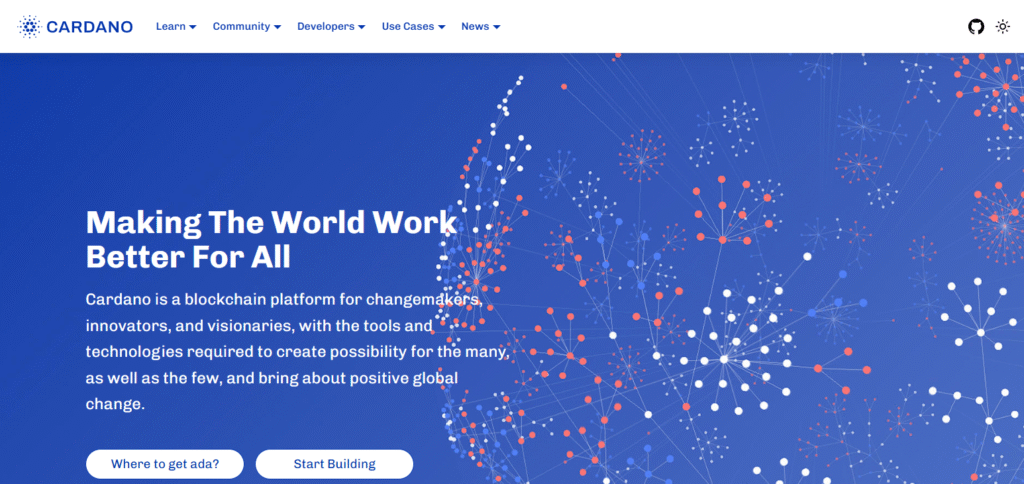
Developers are able to develop more reliable and efficient dApps due to the combination of auxiliary Cardano’s formal verification capabilities, focus on security and scalability, and supported methods for efficient decentralised application cost management algorithms. Cardano’s documentation, community, and platform off the ecosystem further enrich experience.
Cardano Features
9.EOSIO
EOSIO has positioned itself as one of the easiest blockchains for developers because of its scalable architecture, high performance, fast and fee-less transactions.
The security and efficiency of the system is maintained through the Delegated Proof of Stake (DPoS) consensus mechanism.
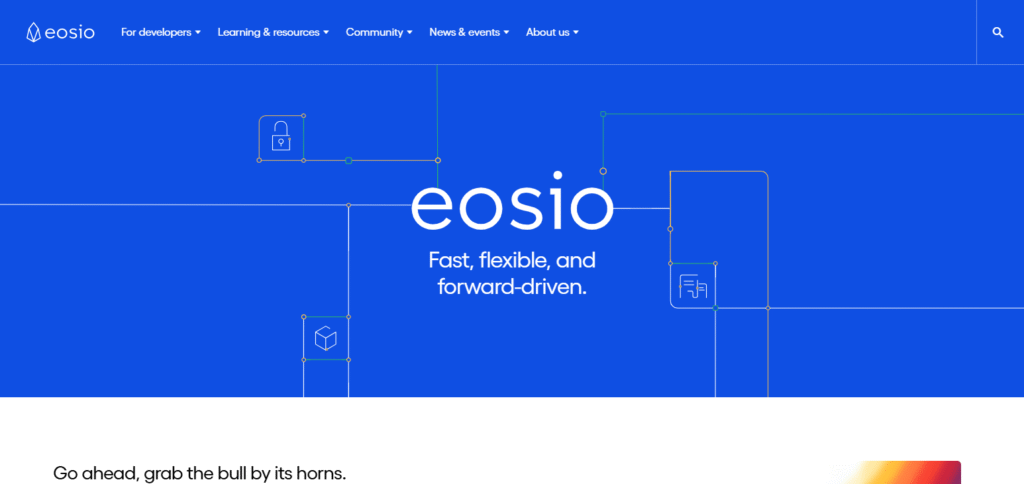
In addition to these, EOSIO equally provides other developer tools such as the EOSIO software development kit (SDK), enabling smart contracts to be written in C++, thus making it extremely easy for developers to design, deploy, and manage dapps.
These features deepen the infrastructure, and speed and simplicity enhances the development of blockchain.
EOSIO Features
10.Corda
Corda stands out as one of the best options available for developers yearning for a simple-to-use blockchain because it caters to enterprise-level applications and privacy.
Unlike other blockchains Corda offers permissioned networks where participants can be granted access to transaction data.
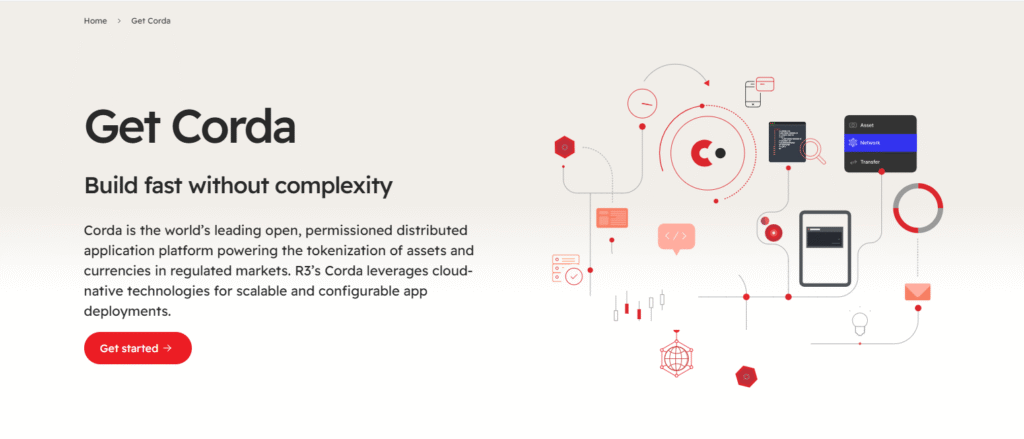
Its approach to smart contracts which are written in Java and Kotlin is exceptional because it offers convenience and integration with pre-existing systems.
Corda’s detailed documentation, developer assistance, compliance capability, and having a support system makes the construction of secure and scalable solutions easier for enterprises.
Corda Features
Conclusion
To sum up, the most accessible blockchains for developers merge simplicity with depth and provide advanced features that streamline the development workflow.
Ethereum, Solana, and Polkadot excel in their comprehensive ecosystems and even in their care for integration, providing adequate support for developers.
Be it interoperability, cost-effective transactions, or safety and efficiency of smart contracts, these blockchains serve tailored functionalities to both veteran and beginner developers. Such platforms enable developers to create decentralized applications and advanced blockchain solutions with high levels of automation.


